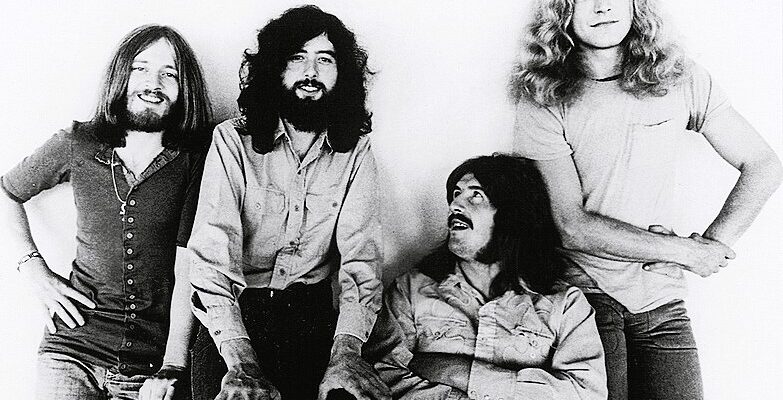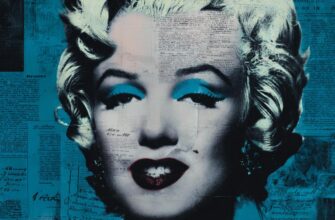When you think of British rock from the 1970s, one name stands out above the rest: Led Zeppelin. With their thunderous riffs, soaring vocals, and a sound that blended blues, folk, and raw power, they didn’t just make music—they redefined what rock could be. From packed arenas to timeless albums, Led Zeppelin ruled the decade and left a mark that still echoes today. In this article, journalists from TheMors dig into how Led Zeppelin became the greatest British rock band of the 70s, exploring their rise, their sound, and the legacy they built. Whether you’re a die-hard fan or just getting into their catalog, here’s the story of how four guys from England turned rock upside down.
- Where It All Started: The Birth of Led Zeppelin
- What Made Led Zeppelin Stand Out in the 70s?
- How Did They Dominate Live Shows?
- The Challenges They Faced
- Why Were They the Greatest British Rock Band of the 70s?
- What Set Them Apart From the Rest?
- How to Dive Into Led Zeppelin Today
- Wrapping Up Led Zeppelin’s 70s Reign
Where It All Started: The Birth of Led Zeppelin
Led Zeppelin kicked off in 1968, born from the ashes of The Yardbirds, a British band that guitarist Jimmy Page had joined a couple of years earlier. When The Yardbirds fizzled out, Page didn’t waste time. He teamed up with Robert Plant, a powerhouse singer from Birmingham, John Paul Jones, a session bassist with serious chops, and John Bonham, a drummer whose sheer force could shake a room. They first played together as “The New Yardbirds” to finish some tour dates, but by October, they’d ditched that name for something bolder: Led Zeppelin.
The name came from a quip by The Who’s Keith Moon, who joked that Page’s new project would “go down like a lead balloon.” Page tweaked it—swapping “balloon” for “zeppelin” and dropping the “a” in “lead” to avoid pronunciation mix-ups. That quick rebrand set the tone: this wasn’t a band afraid to take risks. Their debut album, Led Zeppelin, dropped in January 1969, and it was a game-changer—raw, loud, and packed with tracks like “Good Times Bad Times” and “Dazed and Confused” that grabbed listeners by the throat.
What Made Led Zeppelin Stand Out in the 70s?
A Sound Like No Other
Led Zeppelin didn’t just play rock—they fused it with everything they loved. Blues was the backbone, thanks to Page and Plant’s obsession with American artists like Muddy Waters and Howlin’ Wolf. But they didn’t stop there. They wove in folk melodies, psychedelic vibes, and even hints of Middle Eastern and Indian music. Take “Kashmir” from 1975’s Physical Graffiti—its hypnotic rhythm and orchestral swell showed they could stretch rock into new territory.
John Bonham’s drumming was the glue. His heavy, pounding style—think “When the Levee Breaks” with that iconic beat—gave the band a weight no one else could match. Pair that with Plant’s wild, high-pitched wails and Page’s guitar wizardry, and you had a sound that was both primal and polished. It’s why they’re often called the greatest British rock band of the 70s—nobody else sounded quite like them.
Albums That Defined a Decade
The 70s were Led Zeppelin’s playground, and their albums were the proof. Led Zeppelin II (1969) hit with “Whole Lotta Love,” a track so big it became a rock anthem. Then came Led Zeppelin IV in 1971—untitled but unforgettable, thanks to “Stairway to Heaven.” That song alone cemented their legend, climbing from a soft acoustic start to a roaring finish that still gives chills. By the time Houses of the Holy (1973) and Physical Graffiti (1975) rolled out, they’d mastered mixing heavy hits like “The Ocean” with quieter gems like “The Rain Song.”
Sales backed up the hype. Led Zeppelin IV has sold over 37 million copies worldwide, and every album from the 70s went platinum multiple times in the UK and US. They weren’t just popular—they were a phenomenon, outselling rivals like The Rolling Stones and Pink Floyd during their peak.
How Did They Dominate Live Shows?
Led Zeppelin didn’t just shine on vinyl—they owned the stage. Their 70s tours were massive, filling arenas and stadiums with fans hungry for the full Zeppelin experience. A 1973 show at Madison Square Garden—later filmed for The Song Remains the Same—showed why: three hours of relentless energy, with Plant prowling the stage, Page shredding solos, and Bonham hammering away like a man possessed.
They pushed limits live too. Improvisation was their thing—songs like “Dazed and Confused” could stretch to 30 minutes with wild jams that kept crowds hooked. Fans on forums like Reddit still rave about those gigs, with one user calling a 1977 London show “the loudest thing I’ve ever heard.” That raw power made them the British rock band to beat in the 70s.
The Challenges They Faced
It wasn’t all smooth sailing. The press didn’t always love them—early reviews of Led Zeppelin I called it “derivative” and slammed Plant’s vocals as over-the-top. They shrugged it off, letting their music do the talking. Bigger blows came later: Plant’s car crash in 1975 sidelined them for months, and Bonham’s heavy drinking worried the band. Tragedy struck in 1980 when Bonham died after a night of excess, ending Led Zeppelin’s run. But by then, their 70s reign was already untouchable.
Legal fights over songwriting credits popped up too. Parts of “Whole Lotta Love” and “Stairway to Heaven” sparked lawsuits from artists claiming the riffs were borrowed. The band won most cases, but it added a blemish to their story. Still, fans didn’t care—the music was too good to ignore.
Why Were They the Greatest British Rock Band of the 70s?
Influence That Lasted
Led Zeppelin didn’t just rule the 70s—they shaped what came after. Hard rock and heavy metal owe them a debt—bands like Black Sabbath and Aerosmith built on their blueprint. Even grunge icons like Nirvana nodded to Zeppelin’s heavy grooves. “They set the bar,” said Dave Grohl in a 2012 interview, summing up their reach. Covers of “Stairway” by everyone from Heart to Foo Fighters show how their songs stuck around.
A Legacy in Numbers
The stats don’t lie. Eight studio albums in the 70s, all hitting the UK Top 10. Over 200 million records sold worldwide by 2025 estimates. A Grammy Lifetime Achievement Award in 2005 sealed their status. No other British rock band of the decade matched that pull—Pink Floyd had the concepts, The Who had the drama, but Zeppelin had the raw, unstoppable force.
Fans Kept Them Alive
The fans played a huge role too. Bootlegs of their live shows traded hands in the 70s, and today, YouTube clips rack up millions of views. A quick scroll through X shows posts praising “Kashmir” or debating the best Bonham solo—proof their music still hits hard. That connection with listeners, then and now, is why they’re called the greatest.
What Set Them Apart From the Rest?
Other British rock bands of the 70s—like The Rolling Stones or Deep Purple—had their moments, but Zeppelin had something extra. The Stones leaned on swagger and blues; Deep Purple cranked up the speed. Zeppelin mixed it all—blues, folk, rock, and more—into a sound that was bigger than the sum of its parts. They weren’t afraid to experiment, whether it was Plant’s lyrics about Viking lore or Jones adding mandolin to “Going to California.” That versatility kept them ahead.
Their mystique helped too. No singles, no TV appearances—just albums and tours. It made every release an event. When Led Zeppelin IV hit shelves, fans lined up without hearing a note beforehand. That trust between band and audience was rare and powerful.
How to Dive Into Led Zeppelin Today
If you’re new to Led Zeppelin or want to revisit their 70s glory, here’s where to start:
- Key Albums: Grab Led Zeppelin IV for “Stairway,” II for “Whole Lotta Love,” and Physical Graffiti for “Kashmir.”
- Live Cuts: Check out The Song Remains the Same or the 1976 concert film for the full vibe.
- Playlists: Stream “Immigrant Song” or “Black Dog” to feel their energy.
TheMors journalists pulled this story together from sources like Rolling Stone, BBC, Ultimate Classic Rock, and fan posts on X, giving you a fresh take on a classic tale.
Wrapping Up Led Zeppelin’s 70s Reign
Led Zeppelin didn’t just play music in the 70s—they owned the decade. From their explosive start to their tragic end, they built a legacy as the greatest British rock band of the era with killer songs, epic shows, and a sound no one could copy. TheMors team loved diving into their story, and we’re betting you’ll hear their riffs in your head long after reading this.
Want more on music legends or the latest news? Head over to TheMors – Breaking News and see what else we’ve got cooking.









